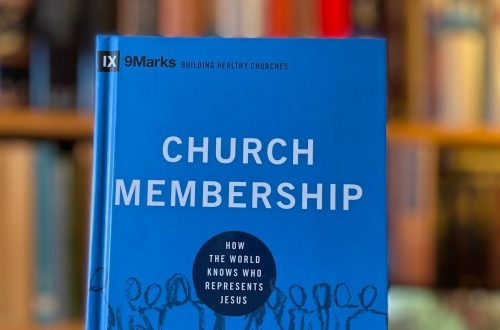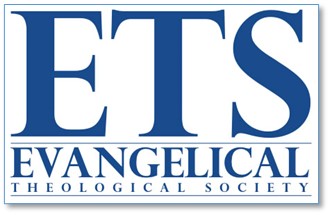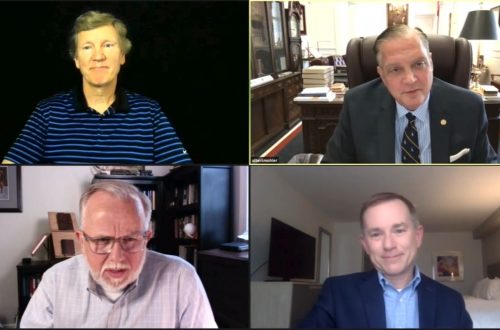In a short piece at First Things, Ryan Anderson makes a point that every Christian needs to hear. The defining heresy of our day is anthropological in nature. It’s about who God created us to be as male and female in His image. So many of our social and spiritual pathologies are downstream from this key theological point. He writes:
Debates about the nature of God, of salvation, and of the Church never disappear, of course. But today, the most pressing heresies—the newest challenges for the Church’s teaching and mission—center on the nature of man. The tribulations that marked the twentieth century and continue into the twenty-first—totalitarianism, genocide, abortion, and the sexual ideology that has battered the family and redefined marriage—have sprung from a faulty humanism. I don’t mean to equate each of these human tragedies with the others, but they all spring from faulty anthropology, a misunderstanding of the nature of man…
If we are seeing in our own time challenges to the truths that we are created male and female, and that male and female are created for each other in marriage, it is because we have lost sight of the true nature of man. We must respond to false humanisms with a true humanism committed to the unique and irreplaceable value of each person.
If Ryan is correct (and he is), then that has implications for how we understand our calling as Christians in our time. We must withstand the heresy of our own day—that our essence is self-determined and that our identity can be boiled down to the sum total of fallen sexual desires. That fictional narrative surrounds us and presses us on all sides. It is the air we breathe. Still we are called to assert the faith in the face of it—to say in our own time what the Holy Spirit has said for all time in Scripture.
To fail that calling—even when the headwinds of culture are blowing hard against us—is a failure of courage and love: (1) courage that God has spoken and that standing for His truth is worth it even when the going gets tough, and (2) love that seeks the good of our neighbor, even when our neighbor disagrees with us.
Heresy has always been a challenge to the church, but it has also always been God’s providential occasion for the triumph of the orthodox. That is the opportunity that is before us now if we have the courage and love to seize it.
—————
Read the rest of Anderson’s piece here. Read Anderson’s new book here.




25 Comments
Christiane Smith
Hi DENNY,
In as much as anything directs our attentions AWAY from Christ, it has within it the seeds of ‘heresy’.
My point is a simple one: our humankind are privileged to know Him as the God who assumes our humanity and in doing so, opens for our humankind the way to eternal life within His own Being. This Incarnational truth is under attack today by those who would diminish the dignity of the human person as recognized within a common humanity formed in the image of God:
For myself, I see attacks on the dignity of the human person as the greater modern heresy which the Church is presently seeking to address, which is consistent with the Church’s constant mission to present to the world ‘The Christ of the Ages’:
” . . . by His Incarnation, He, the Son of God, has in a certain way united Himself with each man” (Gaudium et Spes)
“”Born as a son, led forth as a lamb, sacrificed as a sheep, buried as a man, he rose from the dead as a God, for he was by nature God and man. He is all things: he judges, and so he is Law; he teaches, and so he is Wisdom; he saves, and so he is Grace; he begets, and so he is Father; he is begotten, and so he is Son; he suffers, and so he is Sacrifice; he is buried, and so he is man; he rises again, and so he is God. This is Jesus Christ, to whom belongs glory for all ages.” (Melito of Sardis, 170 A.D.)
Nathan Cesal
The church has completely failed because it thought it’s mission was to wield power in the cultural milieu. Christians thought their job was to shout the truth loudly and support politicians that would enforce biblical standards. There was no Gospel in their response.
Ian Shaw
Based on your statement, you’d like a 3 part blog piece by a professor I’m aware of at
Great Lakes Christian College named John Nugent. Title is “elections and idolatry”. search for it on walkandword
Gregory Williams (@Totheword)
Now my understanding is that Ryan Anderson is Catholic (if I am wrong then I will remove this post). Let’s face down the heresy of the Catholic Church. I find it ironic to hear Catholics talking about defending orthodoxy and facing down heresy. When talking about the heresy of our time, whose to say the Catholic Church is not the greatest heresy of our time. Catholicism a false system that ultimately leads to the damnation of all that adhere to it. Start to think about the countless number of people who are deceived by such heretical damning teachings. So conservative Christians should stop promoting these guys as though we are on the same side just because they are against a certain heresy.
Tawrin McGrew (@tjmcgrewtx)
Mr. Williams, I agree that Catholicism is a heresy, among others, that the Church must contend against. I do think inasmuch as Ryan Anderson’s arguments align with biblical theology and anthropology, we can commend such writings to others for the purpose of edification. I mean, anyone (including an unbeliever) who espouses these kinds of arguments has to borrow from the Christian worldview anyway in order to put them forth. So, I think we can rejoice in God’s truth in that manner, yet still contend for the truth of the gospel as it relates to Catholicism. Just my thoughts.
Gregory Williams (@Totheword)
Mr McGrew, why would I commend a writer to others who are himself is involved in a heretical sect? So would you commend a writer to others who was in the Jehovah”s Witnesses and writing on spiritual matters?
James Bradshaw
Some years ago, John MacArthur published a book that started a debate called the “Lordship Controversy”. MacArthur basically said that it’s insufficient to call Jesus “Savior”. One must also abide by His teachings and declare Him “Lord” as well.
As he put it: “Salvation isn’t the result of an intellectual exercise. It comes from a life lived in obedience and service to Christ as revealed in the Scripture; it’s the fruit of actions, not intentions. There’s no room for passive spectators: words without actions are empty and futile…The life we live, not the words we speak, determines our eternal destiny”
Is he a heretic?
Of course, MacArthur himself seems to believe that everyone who comes to different conclusions than he about what “Scripture really says” is a heretic as well, so it would be fitting were he to be declare one as well.
Unless you’d like to assert that any single person is capable of infallibly knowing theological truth, I’d suggest that most people will die with at least a little bit of heresy in their heads. Besides, I doubt God administers a theology exam upon our deaths with three essays asking for proofs of the five points of Calvinism. But maybe He does ..
Gregory Williams (@Totheword)
James, I would say speak for yourself when you speak of dying with heresy in your head. Secondly I think it could easily pointed out that there is a difference between a theological difference and heresy. Also if we are to follow your logic then everyone is a heretic and it really doesn’t make a difference in fighting for sound doctrine. Finally I think you are sadly mistaken to believe that your theology is not going to be judged.
Gus Nelson
James: I agree with your general premise (I know of, but don’t know, MacArthur or his theology, so I can’t comment on him). Nonetheless, there have to be central tenets which differentiate Christianity from other faiths, or it’s not good news, it’s just different news. Christ’s resurrection, the Virgin conception, the miracles, Christ’s divinity – seems to me denial of such parts of the Christian story would amount to heresy. As we start moving away from there, I would agree with you the water starts getting brackish and it becomes much harder to point out heresy, so grace and humility should be the Christian’s stance there. Am I tracking with you or did I misread?
James Bradshaw
Gus, I’d say that there are certainly a few key differentiators between orthodox and heterodox Christianity. I just seriously doubt that salvation hinges on understanding every obscure and esoteric theological doctrine (as Gregory seems to imply). The whole notion is rather comical: I’m reminded of the old bridge keeper in Monty Python’s “The Holy Grail” that would not allow anyone through without answering his questions (“What is your name? What is your favorite color? What is the capital of Assyria??!”)
Half of these doctrines involve paradoxes that cannot really be explained in human terms, anyhow. People affirm the notion of the Trinity, but what does it mean? How can a single entity be simultaneously three? No one has the foggiest idea because it can’t be explained in human terms beyond a crude analogy or two. (The water analogy is barely useful: after all, though ice can become water, it cannot be both at the same time).
Gus Nelson
Thanks for your response. I agree with you that if understanding every theological doctrine is the measure of heresy, then we’re all in big trouble. There is certainly a difference between heresy and misunderstanding.
Christiane Smith
Hi GREGORY,
As far as ‘orthodox’ goes, the Athanasian Creed, the Apostle’s Creed, and the Nicene Creed all look fairly ‘orthodox’ to most folks. Hard to know what people mean these days when they say the word ‘orthodox’, though.
Gregory Williams (@Totheword)
Christiane, let’s leave out the word orthodox. Just because someone affirm creeds do not mean that they are not heretical or false teachers. Catholicism is false and damning.
Christiane Smith
Hi GREGORY,
I affirm the creeds in the liturgy of my Church . . . the Nicene Creed is proclaimed every Sunday during the Service of the Word, and during a children’s mass, the Apostles Creed may be said instead . . . if a person is ‘affirming’ these creeds, they are affirming ‘catholic’ creeds (lower case) that are still actively used in the prayers of all Catholic people in modern times.
If you ask a Catholic what they believe, they will likely repeat one of these creeds that are used regularly in the liturgy of the Church. Or perhaps one of proclamations based on the Creeds, such as
‘Christ has died, Christ is risen, Christ will come again.’
Just a clarification, which I hope helps a bit. As far as I know, many non-Catholic Churches also use the Apostle’s Creed in their services . . . some even proclaim the Nicene Creed.
Gregory Williams (@Totheword)
Christiane, I see you are still missing my point. Just because a church affirms a creed does not mean that it is not false. People can affirm a creed and still teach heresy. Catholicism is a false heretical system.
Travis Henderson
Yes, isn’t it interesting the ‘heresies’ Christians will overlook for the sake of convenience?
Gregory Williams (@Totheword)
Very interesting.
Roy Fuller
Another example of Burk posting something by someone outside his evangelical tradition because he agrees with the specific point they are making in the post, and because he wants his view supported by others across the Christian spectrum in order to mute criticism that he and his crowd are narrow. As others above have pointed out, and I imagine that Burk would acknowledge, he would not agree with all of this author’s theology. From Burk’s perspective, this author is a heretic. Yet he posts him here to score points – so much for calling out false theology and false teachers.
Christiane Smith
Perhaps Dr. Burke is posting information about Ryan Anderson’s work more in association with his connections to the Heritage Foundation rather than the Church. I cannot speak for Dr. Burke, of course, but it might make more sense to think that instead of assuming that he is doing this to ‘score points’. I don’t think he needs to score points with anyone in order to bring ideas here for discussion. It also makes great sense for people to learn to dialogue with others from diverse backgrounds because in this country, that is the reality and if we have any hope for working together on issues of mutual importance, we do need to communicate respectfully with one another on blogs and in communities.
James Stanton
Roy,
I think this is broadly true but also should be forgiven considering the blog medium. I don’t agree with most liberals on abortion, for example, but I’ll link to liberals when I agree with their critiques on economics or foreign policy.
It’s up to us to separate the wheat from the chaff.
Travis Henderson
But Burk has made himself an arbiter of who is and who isn’t a Christian. Why is he willing to call pro-gay Christians (or ‘Christians,’ as he would write) heretics, but not Catholics? Because Catholics are convenient allies?
buddyglass
The difference, I think, is that you can identify as “Catholic” and not actually believe (or even be aware of) all the Church’s heretical doctrine. You might not be a good Catholic, but they’re probably not going to kick you out.
Someone who is “pro-gay” (depending on what you mean by “pro-gay”) is explicitly advocates a position that Denny regards as obviously contrary to the Bible. Rejecting a teaching that’s clearly and (arguably, from Denny’s perspective) unequivocally laid out in God’s word is reasonably suggestive that someone might not actually be indwelt by the author of that word.
Roy Fuller
Exactly.
James Stanton
I think that’s probably the most likely answer, yes. Denny had no qualms supporting or encouraging social conservatives to vote for a Mormon or someone who was on his third marriage. Social conservatism is very tribal. As long as you are vocal about supporting socially conservative causes then your personal character or religion is not as much of an issue.
I think your disagreement with Denny is more about his opposition to theological liberalism.
Sean Giordano
[Quote}
Christianity is closely tied to the success of capitalism,[1] as it is the only possible ethic behind such an enterprise. How can such a thing be said? The famed economist/sociologist/historian of our day, Thomas Sowell, speaks to this in his book A Conflict of Visions: Ideological Origins of Political Struggles. He whittles down the many economic views into just two categories, the constrained view and the unconstrained view.
? The constrained vision is a tragic vision of the human condition. The unconstrained vision is a moral vision of human intentions, which are viewed as ultimately decisive. The unconstrained vision promotes pursuit of the highest ideals and the best solutions. By contrast, the constrained vision sees the best as the enemy of the good— a vain attempt to reach the unattainable being seen as not only futile but often counterproductive, while the same efforts could have produced a more viable and beneficial trade-off. Adam Smith applied this reasoning not only to economics but also to morality and politics: The prudent reformer, according to Smith, will respect “the confirmed habits and prejudices of the people,” and when he cannot establish what is right, “he will not disdain to ameliorate the wrong.” His goal is not to create the ideal but to “establish the best that the people can bear.”[2]
Dr. Sowell goes on to point out that while not “all social thinkers fit this schematic dichotomy…. the conflict of visions is no less real because everyone has not chosen sides or irrevocably committed themselves.” Continuing he points out:
? Despite necessary caveats, it remains an important and remarkable phenomenon that how human nature is conceived at the outset is highly correlated with the whole conception of knowledge, morality, power, time, rationality, war, freedom, and law which defines a social vision…. The dichotomy between constrained and unconstrained visions is based on whether or not inherent limitations of man are among the key elements included in the vision.[3]
The contribution of the nature of man by the Judeo-Christian ethic is key in this respect. One can almost say, then, that the Christian worldview demands a particular position to be taken in the socio-economic realm.* You can almost liken the constrained view of man in economics and conservatism as the Calvinist position. Pulitzer prize winning political commentator, Walter Lippmann (1889-1974), makes the above point well:
? At the core of every moral code there is a picture of human nature, a map of the universe, and a version of history. To human nature (of the sort conceived), in a universe (of the kind imagined), after a history (so understood), the rules of the code apply.[4]
A free market, then, is typically viewed through the lenses of the Christian worldview with its concrete view of the reality of man balanced with love for your neighbor;
The nature on man is a point I make in my book “Worldviews: A Click Away from Binary Collisions (Religio-Political Apologetics)”.
[I am not a “good” writer, but do all right for a retired con]